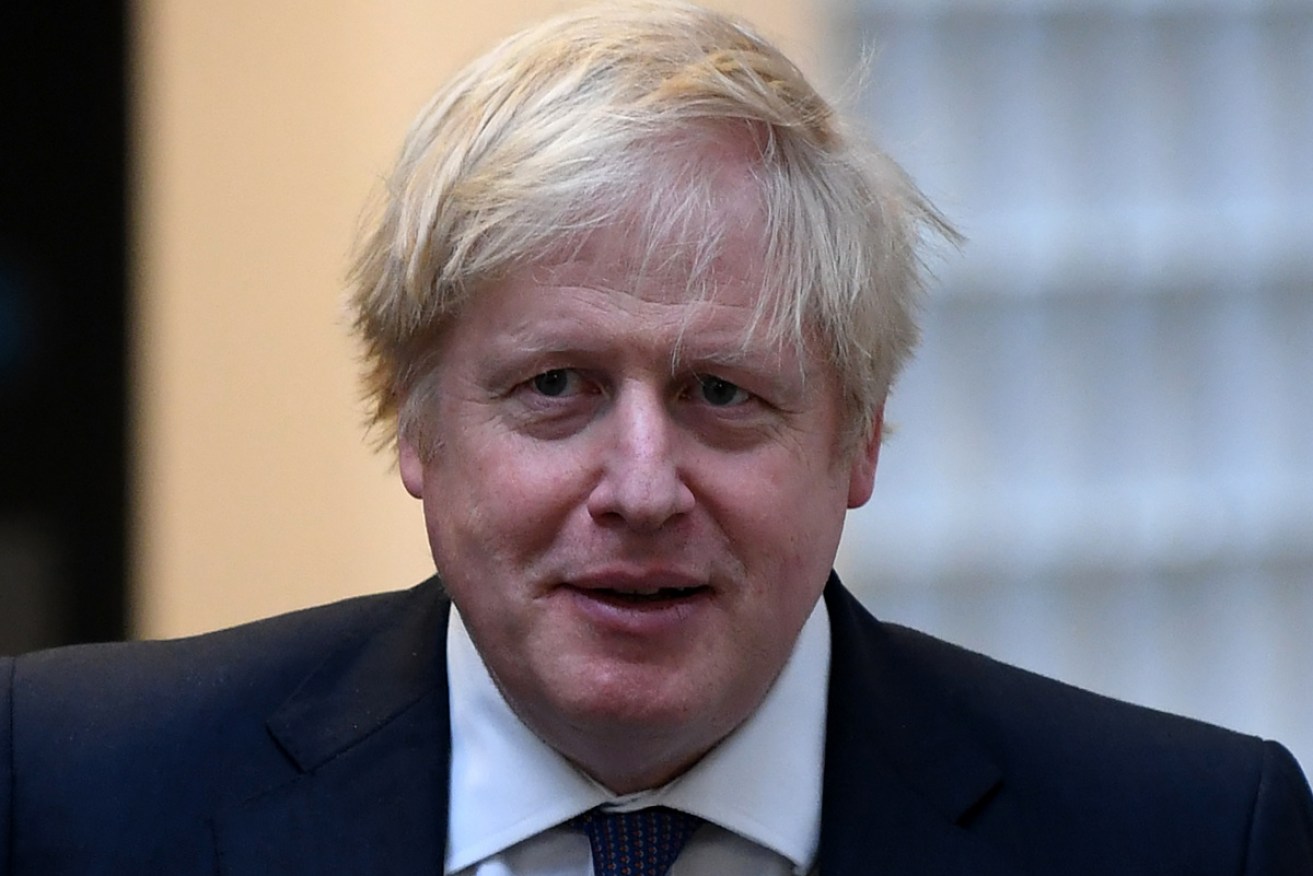Boris Johnson admitted to hospital for tests over persistent coronavirus symptoms


UK Prime Minister Boris Johnson is continuing to improve since being returned to the ward after three nights in intensive care. Photo: Getty
British Prime Minister Boris Johnson has been taken to hospital as he continues to show symptoms of the coronavirus, 10 days after testing positive.
A Downing Street spokesperson said Mr Johnson had shown persistent symptoms of the coronavirus since self-isolating at No.11 Downing Street on March 27 after testing positive to COVID-19.
However, his hospital admission is said to be “not an emergency”.
British health officials said on Sunday the death toll from the coronavirus had risen by 621 to 4934 with 48,440 people testing positive.
“On the advice of his doctor, the prime minister has tonight been admitted to hospital for tests,” Downing Street said on Monday morning (Australian time).
“This is a precautionary step, as the prime minister continues to have persistent symptoms of coronavirus 10 days after testing positive for the virus.”
A source told Reuters that British Foreign Secretary Dominic Raab would chair the government’s emergency COVID-19 meeting on Tuesday (AEST).
Mr Johnson’s pregnant fiancee, Carrie Symonds, 32, also had symptoms but said on Saturday she was feeling better.
Tweet from @carriesymonds
Since his self-isolation, Mr Johnson has had his meals brought to him and has conducted the business of government in a suit and tie via videolink and social media.
However, on Friday, looking slightly dishevelled with his tie undone and short of breath, the PM said he still had one of the symptoms with a high temperature.
Reuters reported Downing Street refused to say what tests Mr Johnson was to have in hospital. But experts said a person of the prime minister’s age with COVID-19 symptoms after 10 days would be likely be assessed for their oxygen levels, lung, liver and heart functions, and undergo an electrocardiogram heart check.
Doctors managing COVID-19 patients have reported that more men than women have serious problems. Patients who are overweight or with previous health issues are at a higher risk.
Earlier this year, Mr Johnson said he needed to lose weight.
“The prime minister thanks NHS staff for all of their incredible hard work and urges the public to continue to follow the government’s advice to stay at home, protect the NHS and save lives,” Downing Street said.
Meanwhile, Prince Charles, 71, is back at work after recovering from the coronavirus, which he tested positive for at the end of last month.
As Patron of @age_uk, The Prince of Wales shares a message on the Coronavirus pandemic and its effect on the older members of the community. pic.twitter.com/a6NEFPOtvQ
— Clarence House (@ClarenceHouse) April 1, 2020
Charles was in a high-risk category because of his age. But he had only mild symptoms of the virus that has brought the UK and countries across the world to a standstill.
He addressed the nation from his home office in Birkhall – his Scottish home – last week, describing the virus as a “strange, frustrating, and often frustrating experience” and saying that he was “on the other side” of his diagnosis.
“My wife and I are thinking particularly of all those who have lost their loved ones in such very difficult and abnormal circumstances, and of those having to endure sickness, isolation and loneliness,” Charles said.
“There are truly wonderful neighbours, individuals and groups of volunteers who are providing ceaseless care and attention to those most at risk, and that all this network of selfless assistance is, in itself, helping to provide vital assistance and reassurance to the hard-pressed professional services.”
-with AAP








